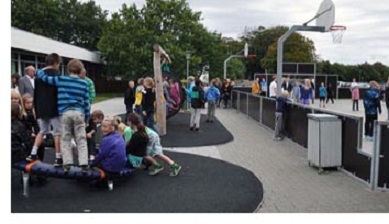DKK 7 million set aside to aid children’s well-being
A new SDU project is using everyday scenarios in primary schools to increase children’s awareness of their bodies
 Knowing one’s own body and feeling comfortable with it is often linked to a sense of personal and social well-being.
Knowing one’s own body and feeling comfortable with it is often linked to a sense of personal and social well-being. With this in mind, researchers at the Institute of Sports Science and Clinical Biomechanics plan to put to good use a grant of almost DKK 7 million from the TrygFonden foundation. The money will finance a primary school project that will use movement and sport to increase children’s and young people’s confidence and enjoyment of physical movement, as this can improve their physical self-image and general well-being.
Focus on children who lack physical confidence
The project, which will run until 2017, is based on daily life in schools and is expected to result in proposals for initiatives and activities that can be implemented in many of Denmark’s schools. The project focuses especially on pupils who lack confidence when it comes to sports and movement, i.e. students who are unsure about what they can do with their bodies and how they should move.
Associate Professor Thomas Skovgaard, who is leading the project, welcomes the research grant, which is now being used to carry out a handful of test scenarios.
The project’s pilot phase will start in the autumn, and a major study phase will be carried out in the 2015/16 academic year involving about 30 schools from different parts of Denmark.
Well-being through movement
- There is every reason to believe that many children and young people are unsure about their bodies, so it’s great that we now have the opportunity to learn more about how we can help youngsters feel better and more confident through physical movement, says Thomas Skovgaard.
The grant to SDU is part of a total fund of DKK 40 million which TrygFonden has allocated to various projects. The requirement for all the projects is that they must help promote children’s and young people’s well-being in day-care centres, schools or housing institutions.